Fifty years after the fall of the hated Greek military junta a local Greek-Australian theatrical group has staged its encore performance of Όμορφη Πόλη (Omorfi Poli) - Beautiful City - in Sydney to resounding acclaim.
The Greek Cultural Centre in the inner-city suburb Marrickville was the setting for a theatrical production – described as a play-hymn – put on by the Greek Stage Theatre that celebrates freedom over oppression and warns against the ever-present tyranny of the state.
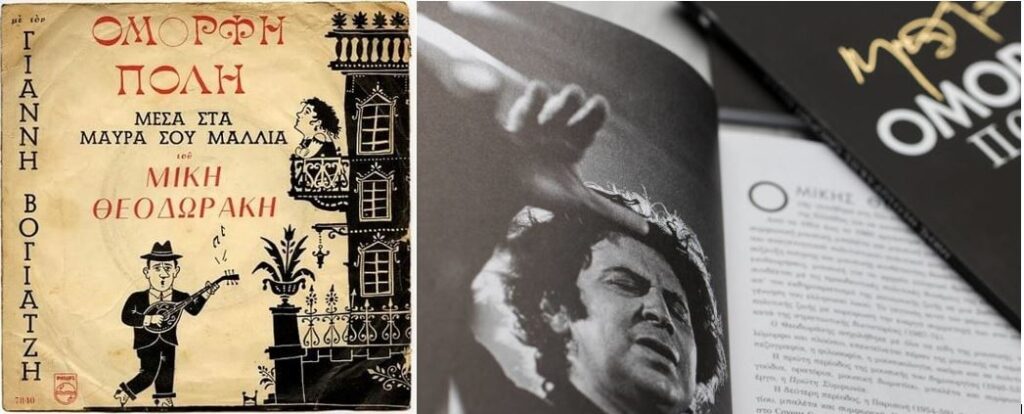
The production, based on the title of a 1962 musical review composed by the legendary Greek composer, Mikis Theodorakis, is set during the stone years of the Greek military junta between 1967-74, culminating in the ruthless suppression of the student uprising in the Polytechnic University in Athens in November 1973.
The lyrics from that 1962 song, recalling a beautiful city, voices, music endless streets and stolen sights, are optimistic that "you will become mine". But the Greek Colonels had other ideas.
The play revisits the dim dark recesses of the military regime that promoted fascism and demagoguery and engaged in barbaric torture and the brutal oppression of opponents of the junta. As the play’s director, Aki Kastelloriou, told one journalist, the aim is to challenge the audience with a thought-provoking drama, encouraging them to “go home and unpack the messages of the theatrical.”
The protagonist in the play, a tortured soul who identifies as Leftheris, is confined in a dark and filthy prison cell, a political prisoner whose only ‘crime’ was to hand out radical leaflets at the university.
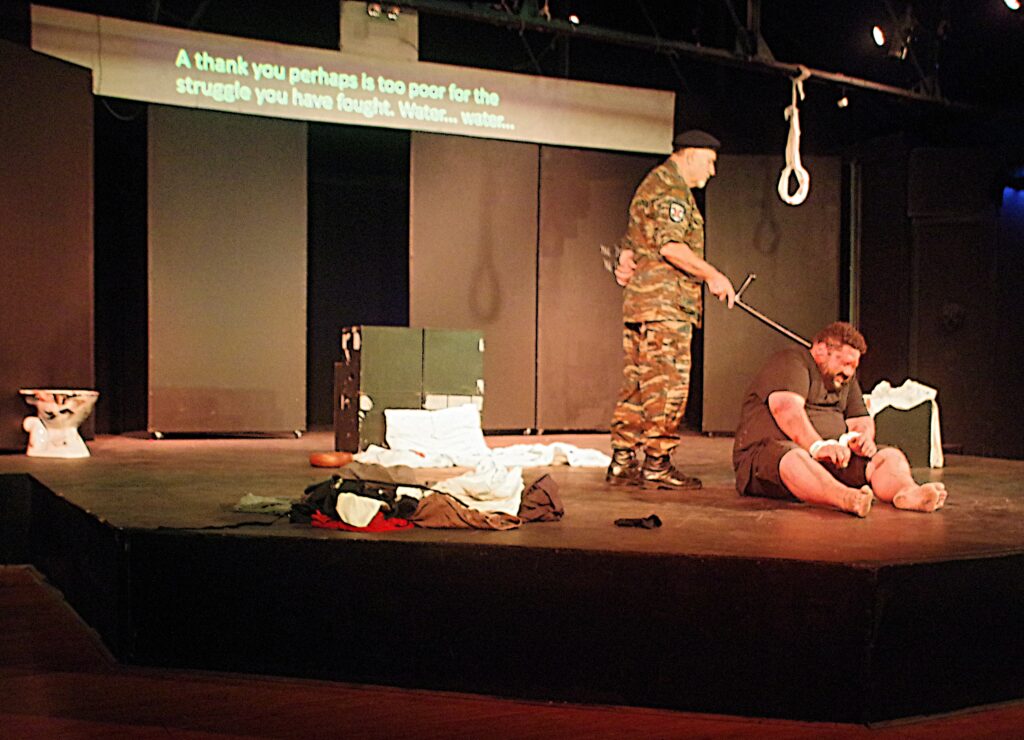
Leftheris, superbly played by Stamatis Psarras, bears the obvious signs of torture with bloodied bound hands and legs and is on the verge of a nervous breakdown at the hands of a sadistic, baton-wielding Greek military police officer.
The tortured soul encounters another person (Kristina Iwannidou) and is initially apprehensive. Who is this? A fellow inmate although seemingly untouched by the hands of torture? When she sings Theodorakis’ songs, is it real or imagined? Or is she just the product of Leftheris’ torture-induced hallucinations?
The audience is left to their imagination.
In two hours the audience is transported to a nightmarish world of torture, prisoner mistreatment and degradation. Each scene in the darkened theatre is announced by a large deafening bell or loud gong which was often used to deprive detainees of sleep.
As we witness the inexorable mental anguish and physical pain that Leftheris endures, the music of Mikis Theodorakis which became symbolic of the resistance against the junta, frames each scene.
Undoubtedly one of the most emblematic songs of the Greek resistance, Theodorakis' Το Σφαγείο (The Slaughterhouse") from his Songs for Andreas cycle, is forever etched in our collective memory:
At noon they hit you in the office
I count the blows, I count the pain
I'm an animal, they closed me in the slaughterhouse
Today it's me, tomorrow you
They hit Andreas at night on the terrace
I count the blows, I measure the blood
We’ll meet again behind the wall
Tap, tap, it’s you, tap, tap it’s me
This means in the language of the dumb
I’m holding on, I’m not giving in
Within our hearts the celebration starts
tap tap from you, tap tap from me
tap tap from you, tap tap from me
Our slaughterhouse begins to smell of thyme
And our cell, red sky
It was also one of the defining songs that was performed in large outdoor concerts staged in Athens after the fall of the junta, capturing the profound public elation at the restoration of democracy:
Mikis Theodorakis composed the Songs for Andreas in around 1968, inspired by his chance meeting with a fellow prisoner whilst the composer was detained by the junta before his release and exile in 1970.
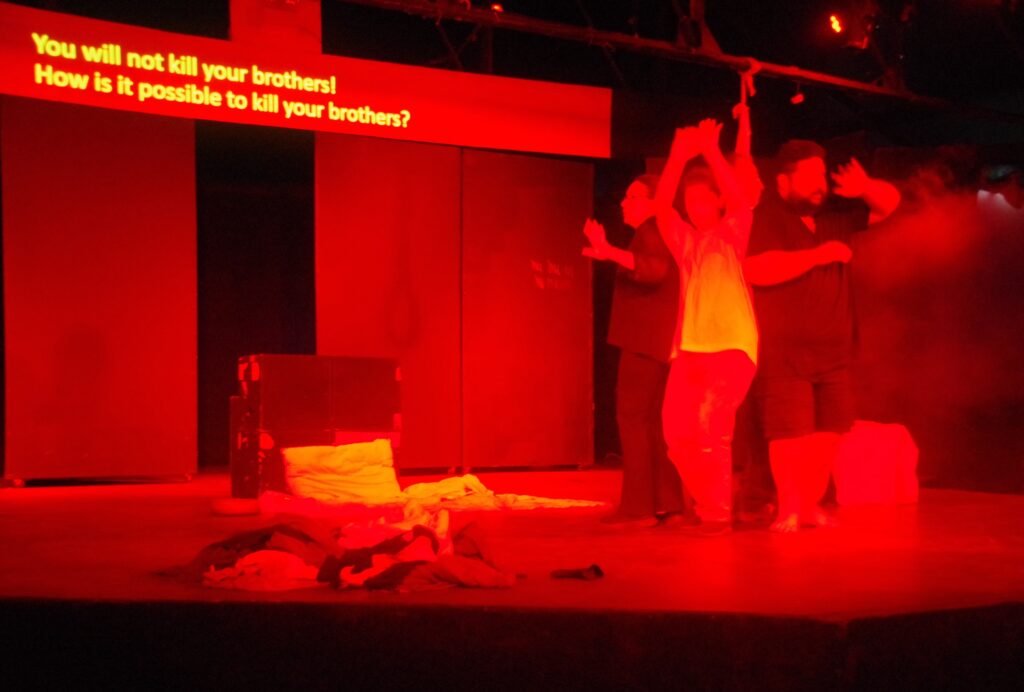
"Our slaughterhouse begins to smell of thyme … and our cell, red sky" (image credit: George Vardas)
Mikis Theodorakis composed the Songs for Andreas in around 1968, inspired by his chance meeting with a fellow prisoner whilst the composer was detained by the junta before his release and exile in 1970.
In his Journals of Resistance, Theodorakis wrote that he came across Andreas Lentakis, a former Lambrakis Youth leader, and they started to communicate in morse by tapping a coded message on the wall. They managed to conduct a long dialogue through the wall and Theodorakis learned of Andreas’ arrest, interrogation, and his torture on the terrace.
As his biographer Gail Holst has written, the lyrics are Theodorakis’ own and they were composed together with the music and demonstrate more than any other the legendary composer’s ability to write songs that can move an entire audience to tears and at the same time capture the hope that arises from struggle and solidarity.
Tap tap it’s you, tap tap it’s me.
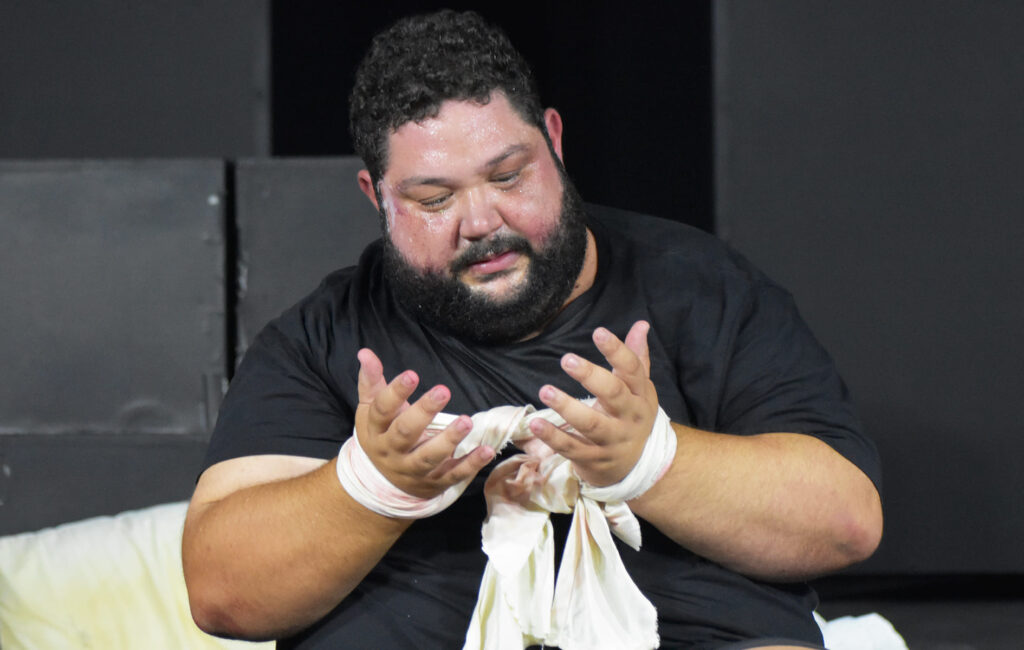
The systematic torture of opponents of the regime remains a stigma on the conscience of Modern Greece. The Greek military regime used terror systematically against its opponents, targeting anyone suspected of being a Communist or a left-wing activist or even a dissenter. The main agencies carrying out this repression were members of the junta’s military police (ESA) and the security forces.
According to a 1974 BBC production called Greece - The Seven Black Years, from the topmost colonels downwards, through the army, the security police, common informers and people blackmailed for information, the whole system functioned in one single direction: it all led to one street and one building: Bouboulinas.
The most notorious torture centre was the Athens headquarters of the security forces at Bouboulinas Street, a four-storey building near the National Archaeological Museum and a stone’s throw from the Polytechnio.
According to Anna Papaeti in her article “Music, Torture, Testimony: Reopening the Case of the Greek Junta (1967-1974)" Bouboulinas Street gained a place in public memory for two of its spaces: the so-called terrace where brutal interrogations and systematic torture took place within its walls as well as the infamous cells in its basement, the so-called well which some inmates described as a grave.
In fact, in March 1968 Anthony Marreco, a member of Amnesty International and the English Bar, went to Bouboulinas Street. He described the "terrace" and had a conversation with Andreas Lentakis and concluded that he had "little doubt that the man had suffered extreme brutality."
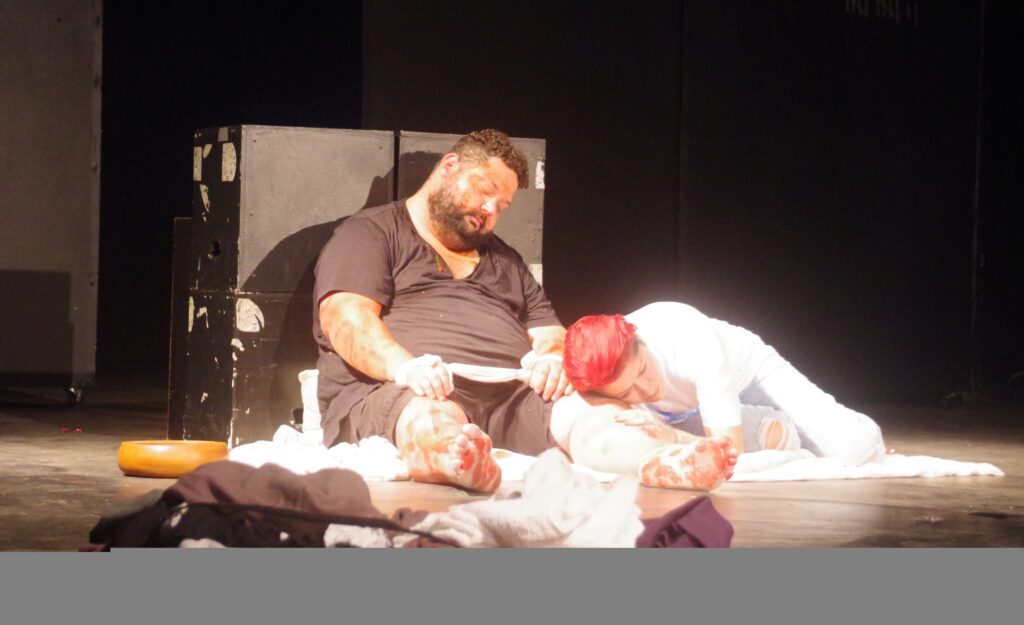
The torture of Leftheris in the play has an uncanny historical provenance.
One of the cases considered by the European Commission of Human Rights (the Strasburg Commission) included that of a young student, Eleftherios Tsiloglou, who had been arrested in November 1968 and eventually taken to the general security headquarters in Bouboulinas Street. He gave the following evidence:
“I was then brought up to the terrace of the building and inside a shabby room equipped with torture equipment. After tying me naked to a wooden bench about 10 men began to torture me. They pummelled the soles of my feet with an iron crowbar (falanga), with two other wooden rods they beat me on the thighs and lashed me all over the body with a whip.”
The demise of the junta was hastened by the tragic events in the student uprising in November 1973 at the Polytechnic University in Athens, a pivotal moment in the resistance to fascism in Greece.
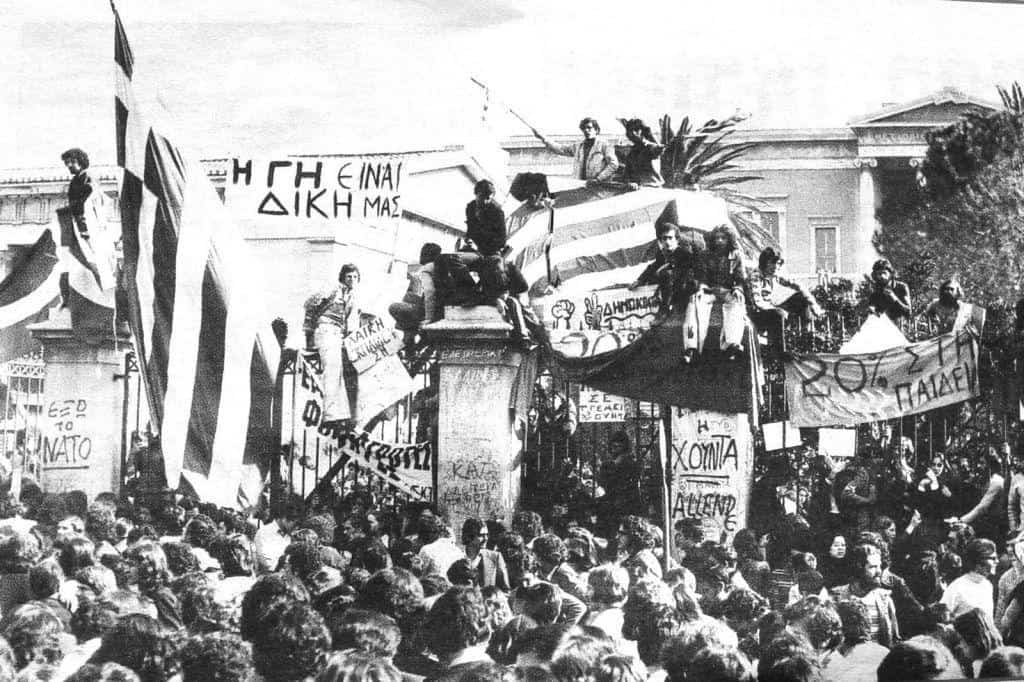
The instigators of this brutal torture regime were tried and convicted in the first torturers trial held in Greece in 1975. As reported by Amnesty International, the trial confirmed that the regime used various methods of torture, including sexual abuse, psychological pressure, electric shock and, most commonly, falanga (beating on the soles of the feet). Prisoners would be routinely deprived of both food and water, interspersed with beatings. Prisoners would often experience hallucinations and delirium. Nervous breakdowns were also common because of the cruel mind games played by interrogators.
One such prisoner, Professor George Mangakis, famously wrote a letter from prison in 1971 which was called “Letter to Europeans” and in which he sought to draw to the attention of the West the deplorable and inhumane conditions that had descended upon the country that gave birth to democracy.
His anguish and torment is palpable:
“I live in this space for endless hours of the day and night. It is like a piece of thread on which my days are strung and fall away, lifeless. Here a man struggles alone with the evil of the world. The system is a diabolical device for annihilating your own soul.”
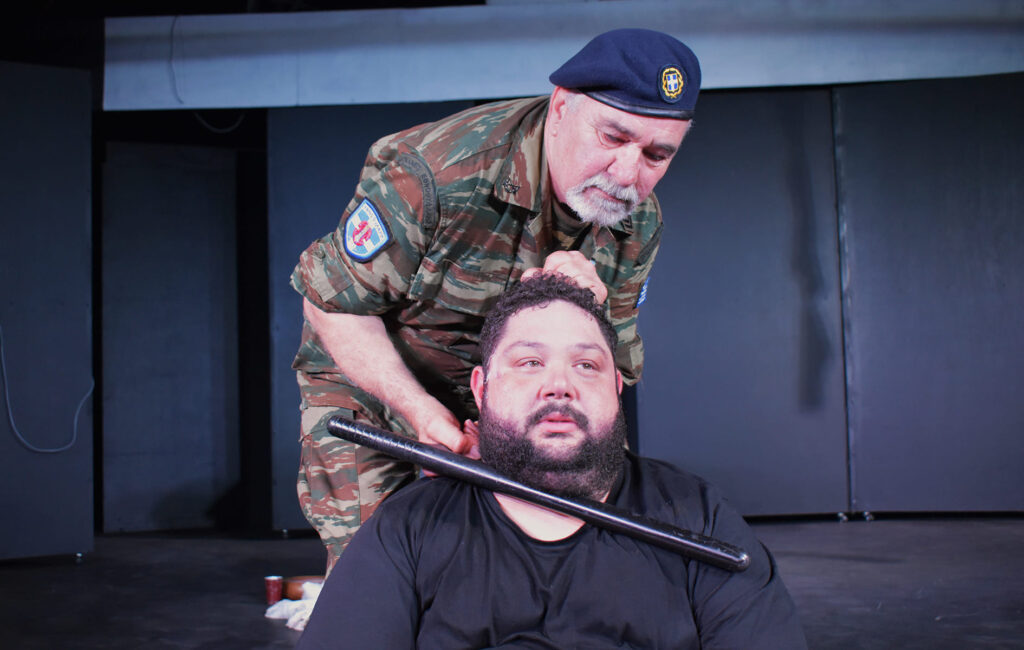
Mangakis writes of his power of endurance and resistance, the “purest of all struggles”:
“I’ve experienced the fate of the victim. I have seen the torturers face at close quarters. Never mind if they strut around in the uniforms, swollen with the knowledge that they can control the suffering, sleeplessness, hunger, and despair of their fellow human beings, intoxicated with the power in the hands. Their intoxication is nothing other than the degradation of humanity… the ultimate degradation.”
The performers in the play “Beautiful City” caution the audience against the ever-present tyranny of the state, whether it be in a fascist-torn Greece of the past or present-day Ukraine or the Palestinian-occupied territories.
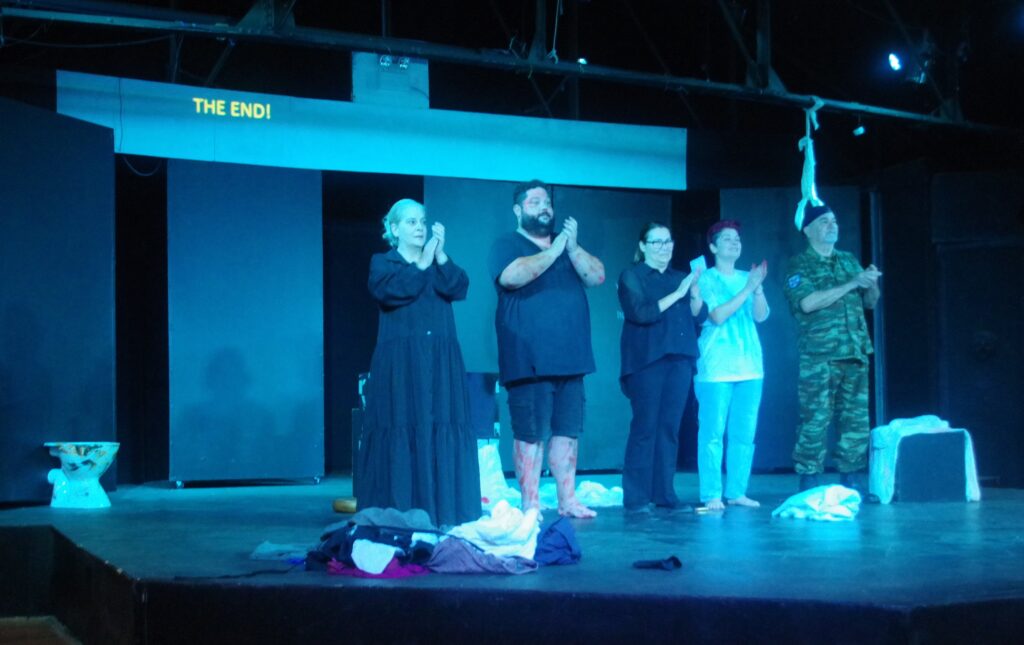
Freedom must always triumph over adversity.
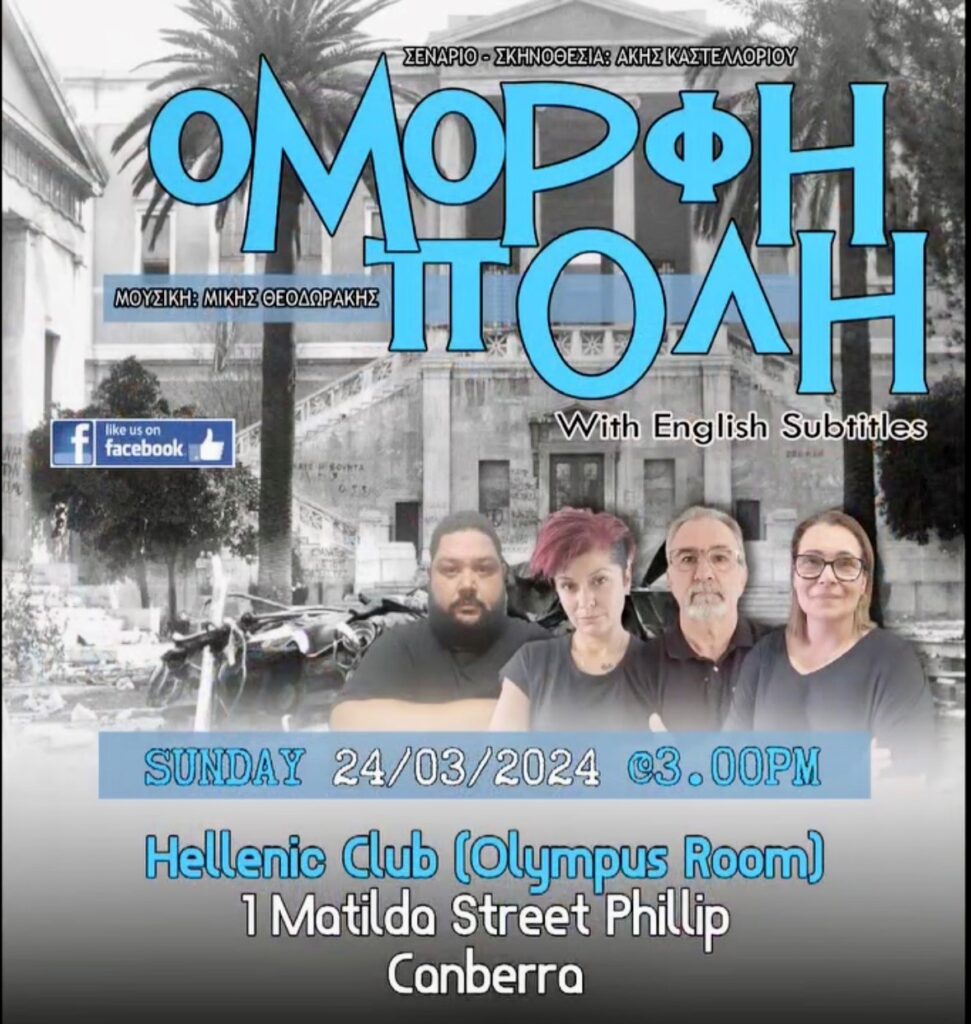
"Όμορφη Πόλη" is taking flight with a performance to be held in Canberra in the iconic Hellenic Club on Sunday 24 March 2024 at 3pm.
It is a production not to be missed.
George Vardas is the Arts and Culture Editor and is also a member of the Multicultural NSW Advisory Board


